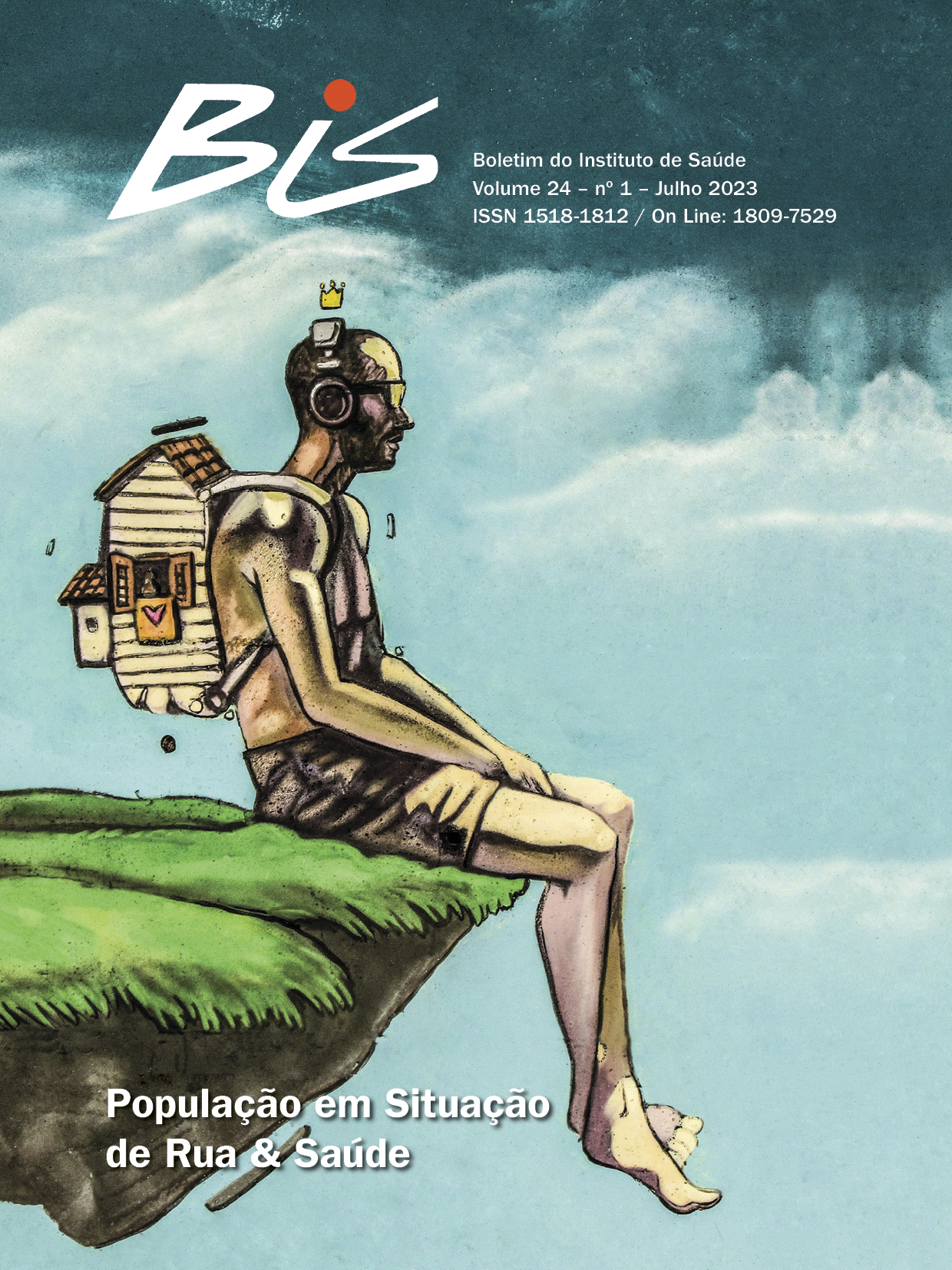Abstract
Stigmas associated with the unhoused and persons deprived of liberty (PDL) are the result of a historical social construction and
imply physical and psychological suffering, family and social ruptures, thats affect the social reintegration and the right to citizenship. The purpose of this essay is to reflect on stigmas and discrimination impregnated in the daily life of unhoused and PDL,
their structural causes and consequences in health care. Our argument is that they constitute important barriers in the care for
those whom most need it, as well as self-care. On the other hand, health professionals have a strategic struggle role. To follow this
path, theoretical contributions from the human and social sciences and real-life experiences were used, obtained from interviews
with these populations and the health professionals whose take care of them. Our bet is that knowing better what is feared and
reflecting on our actions, which are generally bureaucratic and automated, represent important steps towards resignify and reducing prejudices. Also impacting the life of bionomial professional-patient and the production of meaning and improvement of the care provided.
References
Brito C, Silva L, Xavier C, organizadores. Histórias de vida, vozes da rua: relatos de pessoas em situação de rua [internet]. Rio de Janeiro: Fiocruz; 2021 [acesso em 10 jan 2023]. Disponível em: https://www.arca.fiocruz.br/handle/icict/46455
Parker R. Interseções entre estigma, preconceito e discriminação na saúde pública mundial. In: Monteiro S, Villela W, organizadores. Estigma e saúde [internet]. Rio de Janeiro: Editora Fiocruz; 2013[acesso em 10 jan 2023]. p. 25-46. DOI:
7476/9788575415344.0003.
Souza J. Subcidadania brasileira: para entender o país além do jeitinho brasileiro. Rio de Janeiro: Leya; 2018.
Bourdieu P. A distinção. São Paulo: Edusp; 2009.
Velho G. Violência, reciprocidade e desigualdade: uma perspectiva antropológica. In: Alvito M, Velho G, organizadores. 2. ed. Rio de Janeiro: editora UFRJ; 2000.
Arendt H. The Concentration Camps. New York: The Partisan Review; 1948.
Muniz JO, Almeida R. Respondendo às balas: segurança pública sob intervenção das palavras entrevista com Jacqueline Muniz.
Trab. linguíst apl [internet]. 2018[acesso em 10 jan 2023]; 57(2): 993–1014. DOI: 10.1590/010318138652393387341
Brito C, Silva L. População em situação de rua: estigmas, preconceitos e estratégias de cuidado em saúde. Cienc saude colet [internet]. 2022 [acesso em 10 jan 2023]; 27(1):151-160. DOI: 10.1590/1413-81232022271.19662021
Krenak A. A vida não é útil. São Paulo: Cia das Letras; 2020.
Dejours C. A banalização da injustiça social. Monjardim LA, tradutor. 2. ed. Rio de Janeiro: Fundação Getúlio Vargas; 1999.
Venturini E, Casagrande D, Toresini L. O crime louco. Brasília: CFP; 2012.
Basaglia F. Escritos selecionados em saúde mental e reforma psiquiátrica. Rio de Janeiro: Garamond; 2010.
Castelo Branco T. O estado penal-psiquiátrico e a negação do ser humano (presumidamente) perigoso. Revista de Criminologias e Políticas Criminais. 2017; 3(2): 19 – 32.
Bauman Z. Confiança e medo na cidade. Rio de Janeiro: Jorge Zahar; 2009.
Diuana V, Ventura M, Simas L, Larouzé B, Correa M. Direitos reprodutivos das mulheres no sistema penitenciário: tensões e desafios na transformação da realidade. Cien saude colet [internet]. 2016 [acesso em 10 jan 2023]; 21(7):2041-
DOI:10.1590/1413-81232015217.21632015.
Leal MC, Sanchez A, coordenadores. Saúde materno-infantil nas prisões Rio de Janeiro: Fiocruz; 2014

This work is licensed under a Creative Commons Attribution 4.0 International License.
Copyright (c) 2023 Cláudia Brito
